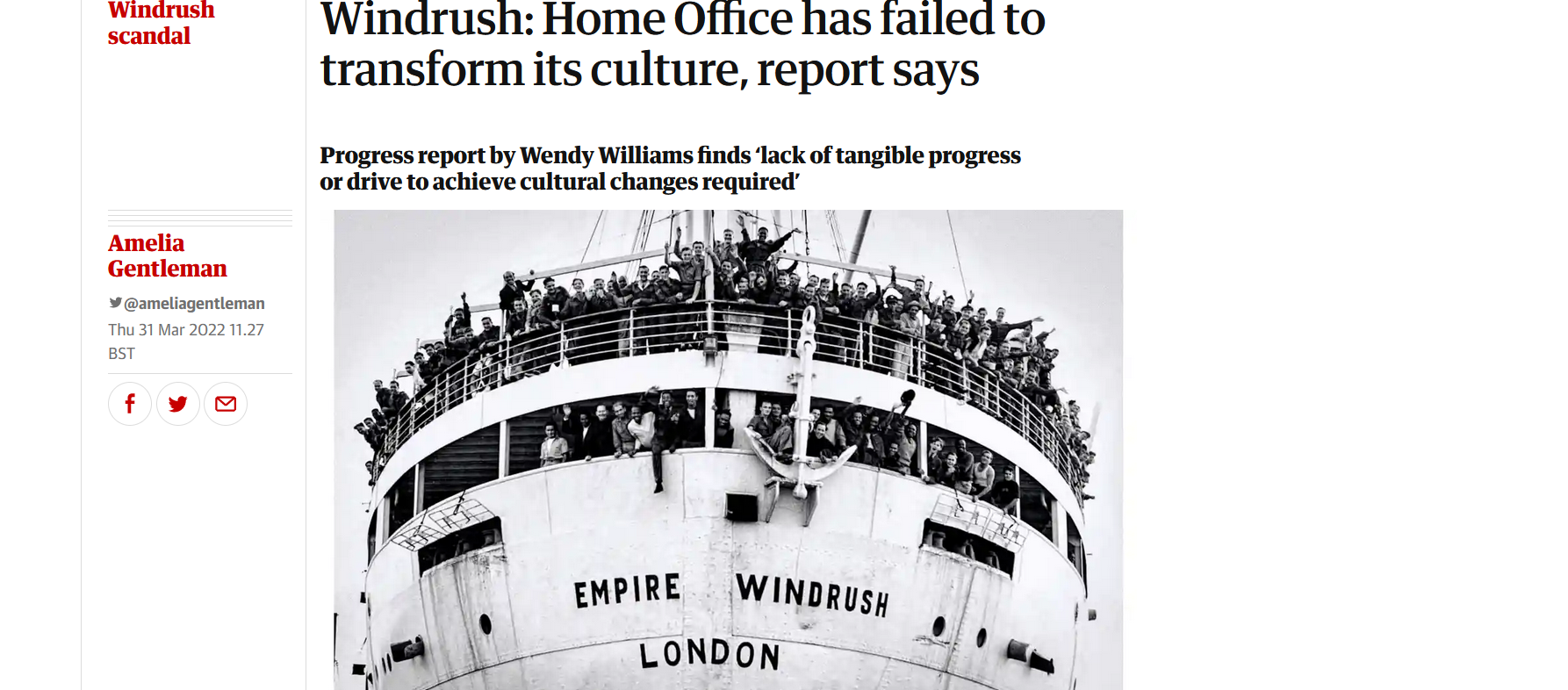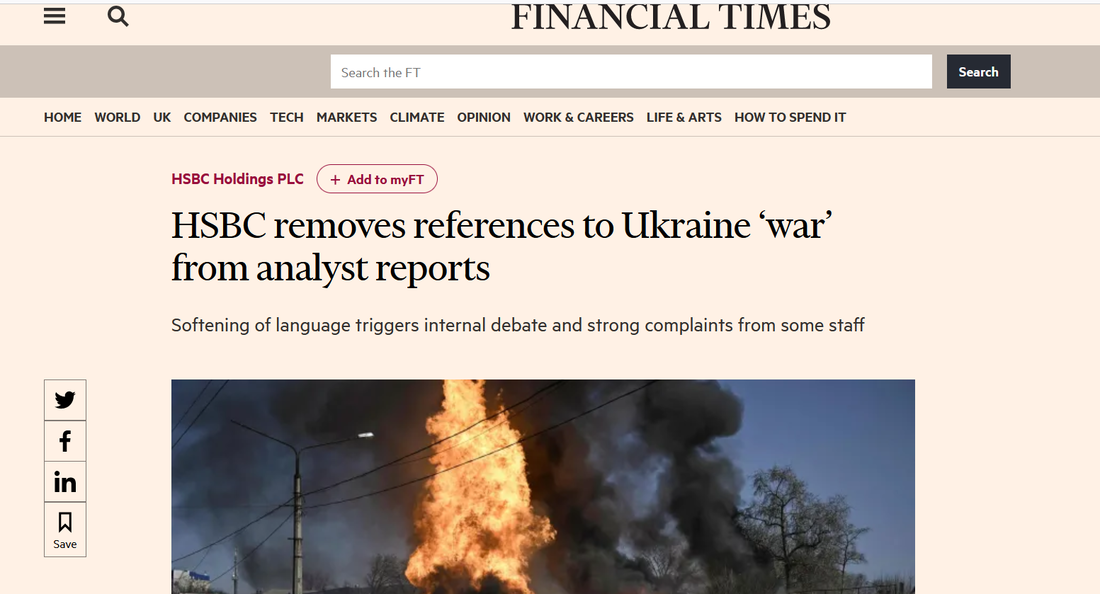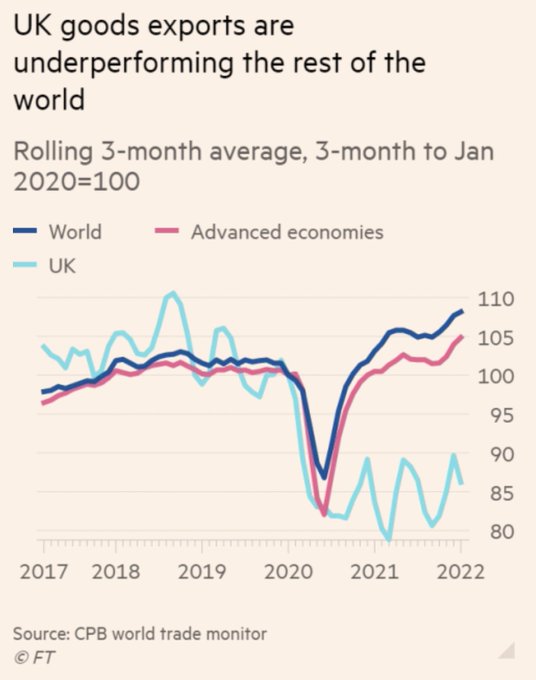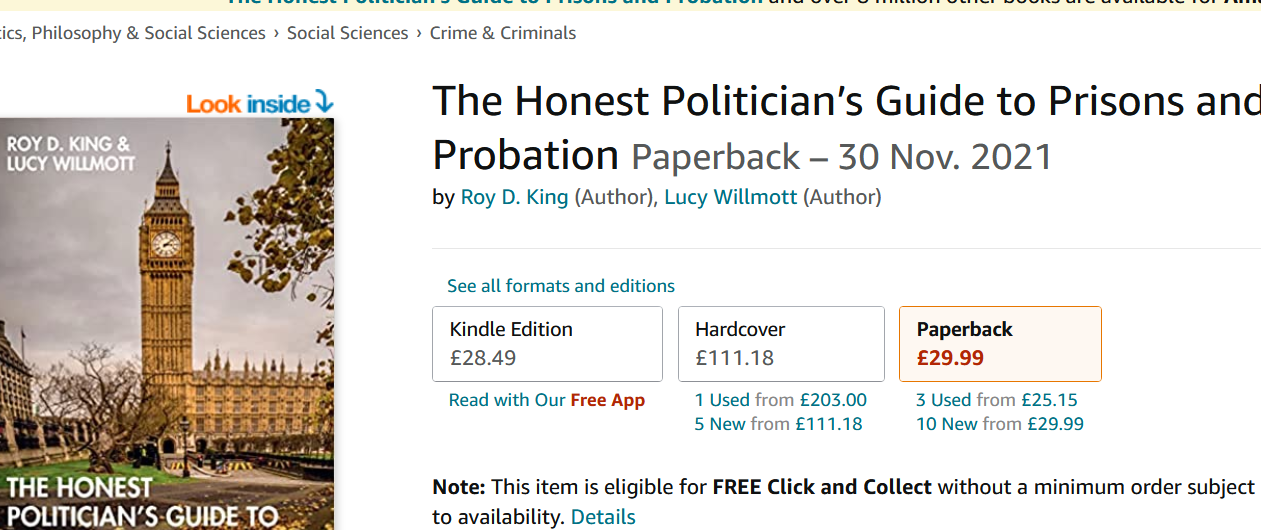|
In a report which will surprise no one, particularly not Ukrainian refugees, it has been officially confirmed that the Home Office is still cruel, as well as incompetent. At least we now know it's not racist: it is indifferent to the suffering it causes the vulnerable, whatever your skin colour. Preferably brown or black, but white will do.
Actually, what I've said is not entirely true. This report will surprise one person: Matthew Rycroft, head of the Home Office, man who last year described the Home Office as ‘a beacon of light for the vulnerable’. I am going to make a rather daring prediction here: that Ryecroft will not be fired, will not resign early, will be knighted, and will retire on a pension not far off £100,000 a year to take up a nice job like head of an Oxford college. That is the penalty for outrageous failure in today's civil service.
0 Comments
My family has banked with First Direct, a subsidiary of HSBC, since it started and it's been a good bank.
Not any more. Today the FT reports that not only has HSBC decided not to wind down its operations inside Russia, as most banks have done, but it has edited its reprots to remove the word 'war' about Ukraine and replace it with 'conflict' and also talks of regretting casualties 'on both sides'. You know, like when Nazi soldiers were shot while executing Jewish partisans. 'On both sides'. Apparently it's much more profitable to be the only big western bank still operating in Russia than to quit. Well, I cant and wont stomach that and I'm closing all our accounts today. It's a bore, but when I look into the eyes of a child orphaned by HSBC's client, what else can I do? If you bank with HSBC or First Direct I urge you to do likewise Matthew Rycoft, head of the Home Office, a man who last year described the Home Office as 'a beacon of light for the vulnerable'.
A thing that has become increasingly apparent, and is brought into sharp focus by the Ukrainian refugee crisis, is the astonishing incompetence, at the most basic level, of the British State. In the refugee context, it is incompetence mixed with carelessness. (Conceivably, the two naturally go together. If you don’t care what happens to people, why care whether what you do works or not?) A lot of this, clearly, is due to ministers – Priti Patel, a woman fired by pathological hatred of the most vulnerable, but who is also surprisingly dense; and of course Johnson, who doesn't do detail and doesn't care about anything except himself. But it's increasingly clear that there is a deep seated and very basic incompetence at official level also. For example, the decision even some weeks into the crisis that one official would be adequate at Calais, with no need for a Ukrainian interpreter, and no need to set up a visa processing office there. Then the bizarre idea of setting up one at Lille but concealing its whereabouts, and the decision that visa processing did not need reinforcing at other locations in Europe, and that there was no need for Ukrainian translation of the visa documentation, are all surely the actions of officials. The new scheme for allowing people to house in their homes Ukrainian refugees not eligible for the previous scheme is equally shambolic. No thought was given to how hosts and refugees would be matched up. The idea that charities and faith groups could somehow do this was not brokered with them at all before the announcement, and they are simply not equipped or resourced to do. As a result all sorts of ad hoc arrangements are growing up, and I know from my own experience of using them that they are wide open to abuse of various kinds, but equally worrying, there is nothing to support people whose immediate instinct is to offer a home with thinking through what that will actually mean for them. And very worryingly, nothing has been done to put in place the specialist resources needed to support refugees themselves, and hosts. Oxford council tell me that government did not talk to or even inform local government before the announcement - parts of a pattern of pathological centralization which is a mark this government. Or rather, a pathological centralization of decision making, combined with the casual assumption that local authorities can always sweep up the mess thus created. And of course, many of the services most urgently needed for refugees, such as housing, social care, mental health services, are precisely those services most badly damaged by Tory cuts. Nor is any source of help identified full cases where either host or refugee come unstuck, and a new home is needed urgently. What is striking is that these are not complex or technical issues, but very basic and very obvious, and exactly the sort of thing that an hours brainstorming would put up on the whiteboard as issues which simply had to be tackled. I mean, there was a room full of Home Office officials, and someone said, let’s allow people to welcome Ukrainians into their home, just as long as they already know the Ukrainian in question, and the person chairing that meeting said; good idea, that’ll work well. The excellent reporting by Amelia Gentleman of the Guardian details what such breath-taking incompetence means for the traumatised war victims: https://www.theguardian.com/world/2022/mar/25/ukrainian-refugees-frustration-grows-over-long-wait-times-for-uk-visas https://www.theguardian.com/uk-news/2022/mar/09/anger-and-exhaustion-as-ukrainians-turned-away-by-uk-in-calais Refugee families sleeping in cars at Calais, with little to eat. Being forced to go to Paris just to fill up a form. Some, God help us, leaving safety to return to Ukrainian cities under siege because their money has run out while waiting for dozy Home Office officials to process their applications or just to answer the question: how long? The officials seem utterly without shame, and are – of course! - never held to account, never even named. Well, let’s make a start here: Glynn Williams DG Migration and Borders Amma Haddad DG Asylum protection Tony Eastaugh Immigration Enforcement (Since you ask: there are 10 ‘Director Generals’. And an unbelievably 68 Directors - I’m quoting from the last official Home Office organisation chart. This from the Department that cut 20,000 police officers.) The institutional incompetence of the British state, which is been growing this past decade or so, no doubt has many causes, including the pathological hostility of ministers towards their own servants, their unwillingness to listen, consequent timidity of civil servants, and a decline in the calibre of people who are willing to serve in such circumstances, so that third raters rise to the top. (I mean, which of us would choose to work for Priti Patel, rather quit and than do something useful – a dustman, for example.) Yet the times are going to require much more of government, not less. Expect more failure. Marina Ovsyannikova is, or rather was, a journalist on the Russian state television channel, an editor, presumably well paid by Russian standards. Then a week ago, she couldn't stand it anymore, and burst in front of the news reader with a homemade sign denouncing the war and telling viewers they were being lied to. She was hauled off in an instant of course, but for that instant, the truth was told, to everybody.
She's in a cell now somewhere, perhaps in the Lubyanka itself, being interrogated, beaten, possibly tortured. Probably her close friends and relatives have been holding to, and maybe some of them will lose their jobs or their university places and certainly be shunned by many who knew them. and for her, what lies ahead? Surely for such an egregious breach, the full 15 years prescribed by new laws, served in some gulag where, under Russian tradition, an attractive young woman must exect the worst. And unless Russia changes, she will be released in 2037, well into middle age, traumatised, coarsened, remembered by no one, with no job and no future. She knew, of course, that exactly this would happen. she must also have known that it would make no difference, that the vast majority of viewers would it obediently wipe their memories of the truth they had seen for an instant, against their will. They are a mystery, aren't they, these lone protestors against dictatorships that are supported by the more or less consent of the majority. A day comes when they can stand it no longer, their throats will no longer utter the lies, their hands no longer write them, and they speak, or act. They burn with a fierce brightness for a moment before going out forever, like a light bulb before it fails. Sophie Scholl in Germany during WW2 was another. But they fascinate us precisely because they are so exceedingly rare. For every or Ovsyannikova or Scholl, there are many millions who plod on submissively, acclimatising ourselves to tyranny, through lies and half lies and little accommodations. The fascinate us because we know, don't we, that we would fail the test she passed, with colours flying. But today, please, just say her name, diffcult though it is to pronounce, say it under your breath, once or twice: Marina Ovsyannikova. e to edit. "The honest politician's guide to prison and probation" by Roy D. King and Lucy Willmott. A review11/3/2022 This is a strange book, and a bad one: indeed, so bad, it's embarrassing. I’m sorry to say that, because Roy King* has had a very distinguished career indeed in criminology, and accomplished much. But there is a phenomenon which I have seen before, of someone so eminent in their field that no one feels able to tell them that they have produced something that simply won't do, and which if published, will embarrass them. Ultimately, this is a failure by the publisher, who should have saved King from himself. [* I am not acquainted with the work of his co-author Lucy Willmott.] The book sets out to chronicle what it calls the growing crisis in prisons and probation since 1991. Most of it is devoted to a very full chronology of the period, interlarded with summaries of interviews with very many of the key players, at very senior level. It's a remarkable achievement to have got so many to agree to be interviewed, and the chronology will be extremely helpful to historians, through read at one go it is incredibly depressing. There is then a short passage of diagnosis, and then suggestions as to what needs to be done. There are three main reasons why this is a bad book. The first is that, for book that sets out to be a history, it's strangely unhistorical. It is utterly bizarre that it takes 1990 as a starting point for the progressive decline of these services, because that year actually saw the worst crisis in the prison system in history. Here's what I said in my book: “In 1987, some 19,000 prisoners were held two or three two a cell designed to hold one, with those prisoners enduring the squalors others defecating into buckets inches from their bunk, the bucket remaining there for many hours. And not just at night: in many prisoners, prisoners were locked in their cells most of the day... hundreds of prisoners had to be held in police cells …. The reality of prison life is vividly recalled by a governor at Strangeways prison, pre-riot: ‘the smell of excrement and urine at slopout, the abysmal food that we served, the relationship between staff and prisoners where every second word was ‘fuck’, prisoners weren’t treated with respect, they weren't treated with decency …..the place was run for the benefit of staff earning massive amounts of overtime at fantastic cost, where racism and brutality was rife’ “Management was appallingly weak. The POA was both powerful... yet anarchic... The POA seemed opposed to anything that made prisoners lives better. Governors only control their jails with the agreement of their POA branch... In October 1990 there were industrial disputes at 70 prisons... Both governors and the POA felt a huge gulf between them and headquarters, headed by career mandarins with no experience of working in prisons. ‘Management’ as such barely existed: headquarters did not set standards that prisons should operate to and had little information about how prisons are actually doing, or where and how resources were being consumed. Yet... it was gobbling up money like a black hole... HMPS had dramatically increased both spending and staffing... yet regimes did not improve: they got worse. “Not only did the service provided appalling conditions and impoverished regimes, it was barely under control. In one year there were 67 acts of concerted indiscipline and 49 incidents where prisoners got on the roof... each year hundreds escaped and thousands absconded... In 1986 this unholy mix of poor conditions, union irresponsibility and management incapacity exploded when management at last tried to get a grip on staffing levels... There was disturbances at 40 prisons, several were partly destroyed 45 prisoners escaped …. There again serious riots several prisons in 1988 and 1989. In 1990 the entire prison system erupted the most serious breakdown ever known One of the largest prisons in the country , Strangeways, was destroyed and held by rioters for four weeks as prisoners demonstrated the incompetence and impotence of the prison service from the prison roofs the TV news”. So to take 1990 is the start of a growing crisis which finally came to a head around 2020 is absolutely perverse. In one passage the book suggests that politically things were much better before 1990 - which begs the question of why then the entire prison system nearly collapsed in that year, with the worst riots ever known? I see in these statements the same denial of reality of the left wing mantra that all evils started with Thatcher: you can only believe that if you wipe your mind of any recollection of the politics, and economics, of the 1970s. A second denial of history is that the book seems to take it for granted that things just got worse through the period 1990. However there is overwhelming evidence that the prison system, and I would argue probation, were in a much better state by middle to end of the 2000s. This was achieved precisely through political leadership (Straw and Blair) as well as the outstanding management leadership of Narey and Wheatley, together of course with a great deal more money. I'm not - of course - arguing that prison or probation services in 2010 were excellent, overcrowding was still extremely high, but I think it's incontrovertible that they were in much better state than they had been in 1990. (Or rather, I would say that in 1990 there was no knowing whether probation was doing well or not: it is simply the practise of criminologists to assert that it was all much better then, the lack of any evidence not bothering them a bit. That the prison service was appalling in almost every way in 1990 is a matter of record). In fact there is a strong argument that even today, the prison system isn’t nearly as bad as it was in 1990: the old punitive POA culture and the institutionalised brutality by staff on prisoners, the open racism, has largely gone, management exists, information exists and attention is paid to what’s happening in prisons a way that wasn’t at all true in the 1980s, and so on. In other words, the arc of this book’s narrative is fundamentally out of line with reality. The second thing that makes this book so bad is the weird lack of reflection, lack of interest in the wider picture and most extraordinary for such eminent researchers, lack of interest in research. This takes various forms. Perhaps the most extraordinary mission is a lack of reference to what was happening to crime over this period. We know from the British Crime Survey, that the long post War rise in crime in this country petered out around 1995, and was followed by the most extraordinary and pretty much unexplained drop in crime: a fall of about 75%. A 75% drop in crime! This goes unremarked on in this book. Yet it should prompt the question of why this extraordinary drop in crime went hand in hand with increased punitiveness in sentencing. Likewise the fact that this drop occurred across much of the developed world at the same time is pretty conclusive evidence that the drop had nothing to do with justice policy or indeed social policy, which differed so much between countries. This in turn should have prevented the authors from making the casual statement, entirely unevidenced, that the ‘answer’ to crime lies in ‘social policy’. Not only does what is known as the ‘ crime drop’ contradict that, but it also calls him question whether there is in fact today any ‘crime problem’ to be ‘solved’. Indeed one of the major omissions of the book is the lack of interest in what was happening in British society, that might have brought about such a drop in crime, while nevertheless increasing punitive attitudes. Nor is there any awareness that public concern about crime as an issue seems according to the British Crime Survey to peak in the 2000s, but now be at rather low levels. There is at least a possibility that in looking for ever-increasing punitiveness, the Tories are flogging the wrong horse. Likewise is complete lack of interest it was happening in other countries at the same time. Also the near total lack of interest in the connexion between prisons and probation and what's happening ‘ upstream’ in the criminal justice system. There's a very strong argument to my mind that if you did think the criminal justice system was a tool for reducing crime - which I do not, and in that agree with the authors - then the means lie not in punishment but in increasing the very low number of crimes resulting in some sort of sanction of the offender, and the very long delays the justice process often incurs. None of this surfaces at all in this book. Yet criminologists are the ones who often (rightly) berate ministers for not taking an overview of the criminal justice system. The authors suggest en passant that the criminal justice system cannot affect crime levels nor can prisons or probation service reduce re-offending – though so casually that I can’t be sure. As it happens I agree on both points. But this isn’t argued, just passingly mentioned. Yet is a huge difference from what every politician and most criminologists believe: most criminologists believe that a much batter correctional system could bring reoffending rates down. But if it is accepted, doesn't that raise the most profound questions - such as what then is the role of prisons and probation to be, and how should we use them? All that is pretty much skated round here. The third great weakness in the book - and this is where it gets embarrassing, - is the quality of analysis. Indeed, there's a terrible imbalance between the very short passage of analysis and the many pages of description and reporting that have gone before. Some of this is so awful look one can hardly bear to recount it. But here goes. There is a passage on ‘ British democracy and the separation of powers’ which drifts all over the place. Even on third reading I cant tell you what it means. I think it favours separation of powers but I cant be sure. I think it’s arguing that ending FPTP would make parties more moderate and justice policy more thoughtful and moderate: a point of view, but does the 2010 Coalition support that? (BTW the authors do not notice that there is no such separation: because the Executive have 100 MPs on the payroll vote, and another 100 kept silent by ambition to replace them. To a practical extent ignored by the theory, the Executive IS the legislature]. The book rightly draws attention to the high rate of ministerial churn, but then cuts the ground from underneath itself by saying that isn't really the problem. The possibility that there's been a serious decline in the calibre of civil servants is not acknowledged, still less explored. The book rightly charts negative changes in political behaviour, such as an increasing tendency of ministers on appointment to forget everything done before then and instantly to announce some new panacea, the increasing confrontational nature of politics, unwillingness to take advice, and policy produced through mere assertion without genuine consultation or thinking through. But without asking itself why these changes came about come out or whether they've occurred elsewhere. I’d say that changes in the media, and indeed increasing confrontationalism in British society as a whole are part of the same picture and there is plenty of poll evidence of a profound polarisation in culture and politics here and in the US. A large part of the population don’t want to listen, or to find common ground. We may actually have the sort of politics we deserve. Where the book fails most is when it comes to proposals for the future. It goes much like this: politicians ought to be nicer to each other and more honest with the public and think things through better and not interfere so much. Yes, what a nice world, but without real analysis of why things are as they are or how to change them is just Pollyanna-ish. Then there’s a strange diversion on problem solving courts, where first of all is recognised that they've not been properly evaluated, but then that proposed as ‘ an exciting way forward’, someone’s hobby horse doing an extra lap. There is a great desire for an old style Lord Chancellor who is a lawyer but not Minister of Justice, possibly with wig, but there's no explanation why or how this would bring any benefit. We should make less use of prison – yes, yes, but how, given current politics, and the polarised, confrontational state of British society? Strangest of all is the passage on the management of prison and probation. There is first the proposition, which I've never seen convincingly argued, that probation must be ‘locally based’, and locally accountable - perhaps it should, but I haven't seen it properly argued. Then it suggested that there should be an Agency for prison and probation, or perhaps two agencies, which seemed to be centrally funded and controlled, not locally , as previously argued - this is left entirely unclear. It is to be accountable to an ‘eminent person’ as chairman, with horrid, horrid politicians excluded and certainly no attention paid to the Daily Mail. I’m not sure I agree with that: what happens in prisons is very much a political issue and it would be wrong, and futile, to try to regard his somehow technical management one, which the technicians could just get on with. But more to the point, the idea that we could move to such an arrangement given the political climate in which we unfortunately operate at present is simply ludicrously adrift from reality. Finally there are two passages which rob the book of any remaining credibility: First it is seriously stated that David Faulkner was ‘one of the wisest of civil servants in the Home Office’. This is taking him very much at his own estimation! And the CJA 1991 is supposed to be his ‘crowning achievement’. Legislation that fell to pieces before the ink was dry, largely because those required to operate it hadn’t been convinced, and achieved…what exactly? Second and even less forgivably, the 1990 White Paper is made to say “prison can be an expensive way of making bad people worse”. This is what it actually said: "Nobody now regards imprisonment, in itself, as an effective means of reform for most prisoners….. For most offenders, imprisonment has to be justified in terms of public protection, denunciation and retribution. Otherwise it can be an expensive way of making bad people worse." Meaning: prison has its uses, but not for cutting reoffending. The truncated version quoted by the authors has quite a different implication: prison is useless. Is it conceivable that the authors simply didn’t check the text? If you're not terrified, you must be mad.
For the first time since nuclear weapons were invented, the leader of one major nuclear power has threatened the other with a first nuclear strike. During the Cold War - what a cheery, comforting war that now looks like! - both sides understood and brought into the concept of MAD, mutually assured destruction. It meant that no matter who started nuclear war, the end result would be the total destruction of both countries. In other words, deterrence. No Cold War leader ever threatened a first strike. The only worry was making sure you spotted the others' first strike in time. By threatening a first strike if the West intervene militarily in Ukraine, r because he doesnt like the colour of Liz Truss's hat, Putin implies that he thinks Russia could win a nuclear war by striking first and survive, more or less. This means deterrence has failed. It means we are nearer nuclear war than at any time in history. Of course, Russia would not survive a nuclear war, as an organised state or society. Which leads to a second and even more terrifying thought. Supposed Putin recognises this. Is it possible that his mystical nationalism and his obvious love of war and destruction have merged, as did Hitler's in his final days, in a belief that the complete destruction of his nation will somehow be worthwhile, if at the same time he completely destroys the enemy? Is he or some part of him, deliberately willing the suicide of this civilization, in the name of revenge on the West? Putin is like a hostage taker, who has wired all his hostages to bombs, holds the button in his hand, and has already killed several. He says that any attempt to rescue and he will detonate the lot. But is it possible he means to do this anyway? Our one hope is that there is amongst the top Russian military and civilian leadership, or even Putin's bodyguard, a man who can see this madness in him even more clearly than we can, and is not in favour of the destruction of the world, and would quite like to carry on living, his family also, and is brave enough to shoot him.. That's ironic. A Russian is threatening to destroy the world, and only a Russian can save us. Now tell me, why are you not terrified? |
I was formerly Finance Director of the Prison Service and then Director of the National Offender Management Service responsible for competition. I also worked in the NHS and an IT company. I later worked for two outsourcing companies.
Archives
January 2023
Categories
All
Click below to receive regular updates
|







 RSS Feed
RSS Feed